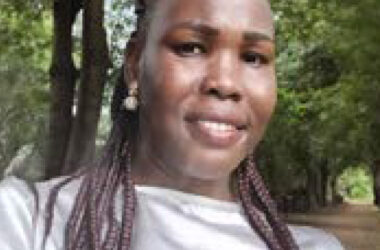By Garang Garang Adim,
Recently, South Sudan took a significant step on the global stage by participating in the 6th Global Conference on Biodiversity Finance in Santiago, Chile.
Supported by UNDP South Sudan, the Ministry of Environment proudly represented our young nation amidst delegates from 133 countries. This event was more than just a meeting; it was a call to action—a reminder that safeguarding our rich biodiversity and fragile ecosystems is a shared responsibility that requires strong policies, innovative financing, and unwavering commitment.
South Sudan is blessed with vast natural resources—rivers, wetlands, forests, savannahs, and a diversity of plant and animal species found nowhere else. Our ecosystems provide critical services: they sustain livelihoods, support agriculture, regulate climate, and preserve our cultural heritage. Yet, these treasures face numerous threats—unsustainable farming, deforestation, illegal hunting, climate change, and harmful subsidies. To protect these vital ecosystems, we must implement international biodiversity protection strategies through robust national actions.
Why International Strategies Matter for South Sudan?
International biodiversity strategies, such as those discussed at the global conference, serve as vital frameworks guiding countries in conserving their natural heritage. They offer proven approaches, resources, and shared knowledge to address complex environmental challenges. For our country South Sudan, these strategies are especially crucial because they help align our national efforts with global best practices and provide avenues for accessing funding and technical support.
Participation in global forums raises awareness about our unique biodiversity and encourages partnerships with international organizations, neighboring countries, and the private sector. It also emphasizes the importance of integrating biodiversity considerations into our national development plans, policies, and laws. Without a clear, comprehensive legal framework rooted in international commitments, our efforts risk being fragmented and ineffective.
The Need for Strong Regulations and Policies
To translate international commitments into tangible results, South Sudan must prioritize formulating and enforcing strong regulations and policies that protect our ecosystems. These legal frameworks serve as the backbone of biodiversity conservation, setting clear rules and standards for individuals, communities, and industries.
For instance, protecting our already established National parks and protected areas such as Boma, Badingilo Ashana, Chelkou, Shambe and Nimule to mention few is important to conserve critical habitats for endangered species. Enacting regulations against illegal hunting and logging helps curb activities that threaten biodiversity. Implementing policies that promote sustainable land use and agriculture ensures that economic development does not come at the expense of our environment. Moreover, integrating biodiversity considerations into sectors such as energy, infrastructure, and mining ensures that development projects are environmentally responsible.
Harnessing Sustainable Financing for Biodiversity
One of the key themes discussed at the global conference was unlocking sustainable financing solutions. South Sudan, like many developing nations, faces financial constraints that hinder effective biodiversity management. International initiatives like UNDP’s Biodiversity Finance Initiative (BIOFIN) provide models and tools to develop tailored plans that attract investments from the financial sector, impact investors, and positive incentives.
By repurposing harmful subsidies—such as those encouraging deforestation or overfishing—and redirecting funds toward conservation efforts, we can create a sustainable financial foundation for protecting our natural heritage. Community involvement is also crucial; when local populations see the benefits of conservation, they become active stewards of their environment.
There is a need for Community Engagement and Traditional Knowledge. Biodiversity conservation is not solely the responsibility of governments. Local communities and indigenous peoples possess invaluable traditional knowledge and livelihoods closely tied to their environment. Empowering these communities through policies that recognize their rights and involve them in decision-making leads to more effective and sustainable conservation outcomes.
For example, community-based conservation programs have shown success in protecting wildlife while providing livelihoods. Such initiatives foster a sense of ownership and responsibility, ensuring that conservation efforts are culturally appropriate and locally supported.
The Role of Education and Awareness
Creating a conservation-minded society begins with education. Raising awareness about the importance of biodiversity and the threats it faces encourages responsible behavior among citizens, youth, and leaders. Schools, media, and civil society organizations play vital roles in fostering a culture of conservation.
By integrating environmental education into our curricula and public campaigns, we can cultivate future leaders who prioritize sustainability and biodiversity protection. This cultural shift is essential for long-term success.
A Call to Action
Our rich biodiversity is a national treasure and a global heritage that demands our immediate attention and collective action. The participation in the global conference symbolizes our commitment to this cause, but it must translate into concrete actions back home.
Formulating strong regulations and policies is our first step. These legal frameworks must be backed by political will, adequate funding, and active enforcement. International strategies provide a roadmap, but it is our responsibility to adapt them to our unique context and implement them effectively.
Our government, communities, private sector, and individuals all have roles to play. By working together, we can develop sustainable solutions that balance development with conservation. Protecting our ecosystems ensures a resilient environment, a healthy economy, and a thriving society for generations to come.
The future of South Sudan depends on our ability to safeguard its natural wealth. International biodiversity protection strategies are powerful tools that can guide us in this journey, but their success hinges on the strength of our regulations, policies, and collective commitment. Let us embrace this opportunity to build a sustainable future—one where our rich biodiversity continues to flourish, enriching our lives and securing our nation’s legacy.
Together, through strong policies and international cooperation, we can turn our biodiversity into a source of pride, resilience, and hope for all South Sudanese. The time to act is now. Let us protect our natural heritage for ourselves and for future generations.




